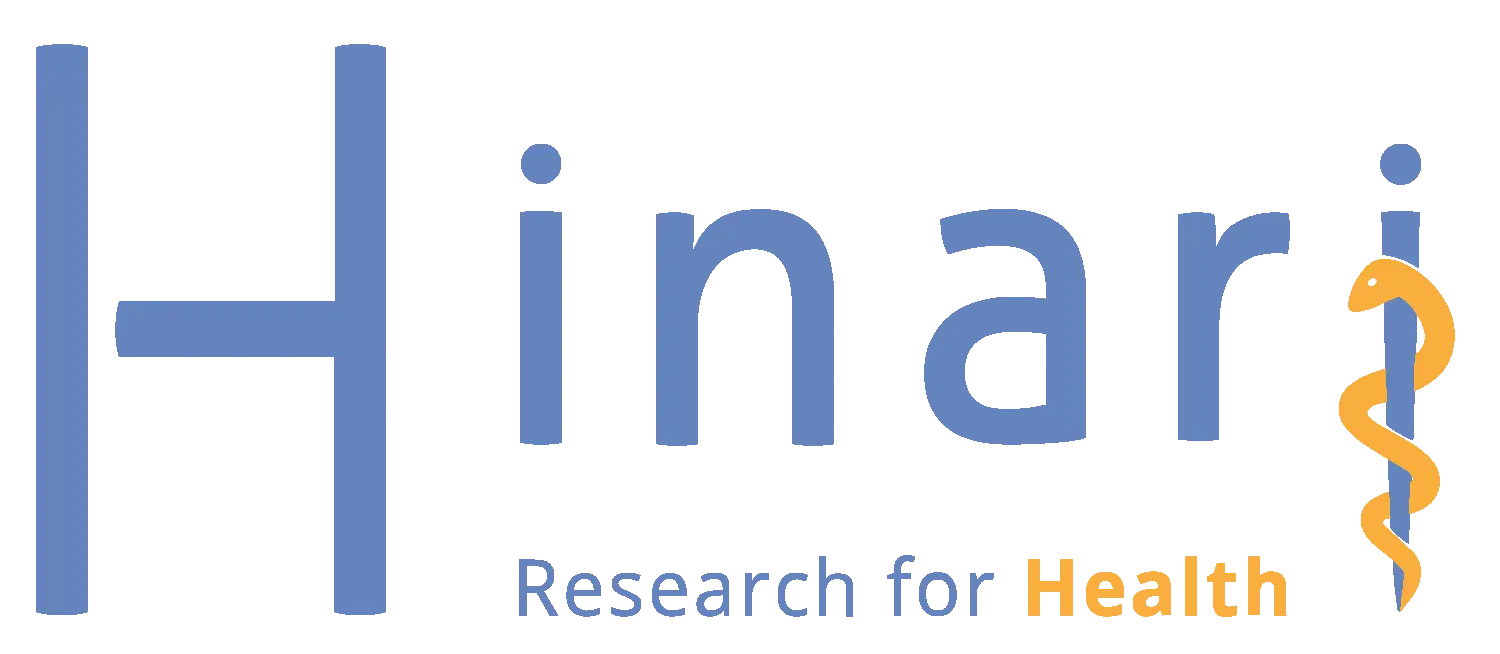Abstract
Objective:
This study aimed to investigate the current dysphagia practices and their defined awareness in the intensive care units (ICUs) in Turkey.
Materials and Methods:
The study was part of an international, multi-center survey, called Dysphagia in Intensive Care Evaluation. The survey included questions related to the descriptive information and questions under three subgroups, including current practice, awareness, and perceived best practice, and was sent to ICU department managers via Google forms for them to answer on behalf of their ICU.
Results:
A total of 39 responses were received, which revealed no standard protocol in all ICUs that indicates which patients should be screened for dysphagia. Cough reflex testing and water swallow tests were the most common methods to confirm dysphagia. Oral hygiene, postural adjustments, modifications, and delay feeding and retry the next day were reported as the most common preventions for aspiration, and repetitive swallowing exercises/maneuvers, muscle strengthening exercises, and respiratory exercises were most common for dysphagia treatment. The awarenessrelated survey items revealed a mean score of >5 on a 7-level Likert scale.
Conclusion:
Dysphagia practice in the ICUs in Turkey needs improvement, with established standardized management protocol.
Keywords: Intensive care, deglutition, dysphagia, deglutition disorders
Introduction
Dysphagia is a condition that includes the ability to eat and drink, and affects body functions (1). It ranges from conditions that mostly affect oral area including food retention in the mouth to difficulty in food delivery to life-threatening situations such as penetration and aspiration (2). Assessments related to dysphagia include biomechanical parameters, integrity and movements of anatomical structures, bolus transport, penetration and aspiration of foods into airway (3,4). In dysphagia treatment, medical, surgical, rehabilitatitive and behavioral approaches are used to to teach compensation mechanisms and improve swallowing physiology (4,5).
Dysphagia occurs with symptoms including coughing during swallowing, wheezing, sputum, weight loss, and recurrent pneumonia (1). It may also affect both patient’s and caregiver’s quality of life. Therefore, identifying and defining swallowing disorders in the early period enables the patient to be included in the swallowing rehabilitation program in the early period and to shorten the recovery period (6-8). The early identification increases the quality of life of both patients and their families, and contributes to the reduction of health-care expenses (9). Thus, it is very important to increase the awareness of clinicians about dysphagia and to identify the presence of dysphagia in the early period.
Dysphagia can be seen between 3 to 62% in critically ill patients on the intensice care units (ICUs) (10). The potential causes were reported as direct trauma caused by endotracheal and tracheostomy tubes, decreased muscular strength and laryngeal sensory function, gastroesophageal reflux, and incoordination of breathing and swallowing (11). Its clinical consequences including dysphagia complications (i.e., pneumonia, reintubation), longer hospitalization, increased healtcare costs, increased mortality are also crucial (12,13). Therefore, early identification of dysphagia in ICU patients become more important, and swallowing function should be evaluated in a timely manner in ICUs. At this point, clinicians in ICUs must have sufficient knowledge and awareness regarding dysphagia, and standardized screening protocols should be established. Despite this need, there is no standardized guidelines for ICU patients related to the management of dysphagia. To establish standardized guidelines, studies investigating national and international practices are necessary to define the needs and best practices. Therefore, this study was aimed to determine the current dysphagia practices, and define awareness regarding dysphagia in ICUs in Turkey.
Materials and Methods
The study was conducted at a university hospital. The Ethics Commission of the Hacettepe University approved the study protocol (approval number: 35853172/431-318, date: 16.01.2018).
This study was conducted as a part of an international, multi-center survey study which is called Dysphagia in Intensive Care Evaluation (DICE). As Turkey local study coordinators, we received the developed survey based on available literature for forward backward translation process. The forward-backward translation process was followed to translate the survey English into Turkish language. The forward translation was performed by two bilingual Turkish physical therapists. Two Turkish translations were analyzed, and turned into a single survey with a consensus. The Turkish version was then translated into English by a native English-speaking language expert who also speaks Turkish for backward translation. The backward version was compared to the original survey in a meeting, and the Turkish version was completed. The backward translation was presented to the main study coordinators for their confirmation.
The survey was sent to ICU department managers via Google forms. Participants were asked to answer the survey on behalf of their ICU. An informed consent was obtained from the participants by clicking the start button of the Google forms. If there are non-responders, a follow-up inquiry was sent two weeks interval.
The survey had questions related to descriptive information, and questions under three subgroups including current practice, awareness, and perceived best practice. The descriptive information related to the hospital and ICU was questioned. In the current practice section, screening procedures, evaluation methods, methods used to prevent aspiration/aspiration pneumonia, interventions to treat dysphagia were questioned. In awareness section, the participants were asked the relationships between and ICU, duration of intubation, ICU length of stay, hospital length of stay, physical functioning, nursing home, risk of ICU-readmission. In the perceived best practice, the need for standard protocol for screening, screening before discharge and screening for post-extubation dysphagia.
Statistical Analysis
The statistical analysis was conducted by using the IBM-SPSS for Windows version 20. Descriptive statistics were calculated as a number/percent for qualitative data, and mean, standard deviation, minimum and maximum values for quantitative data.
Results
The Turkish translation of the survey did not have any linguistic problem, and the final version was presented to the DICE study coordinators, and every item was identical to the original version.
A total of 39 responses was received. Most responding centers were university hospitals (n=32, 82.1%). The descriptive information related to the hospital and ICU is presented in Table 1.
Current Practice
Most ICUs (n=15, 38.5%) did not screen patients for dysphagia after extubation who were intubated for >48 hours, and only 7 ICUs (17.9%) screened them more than >75% of the time. Almost half of ICUs (n=14, 35.9%) did not screen tracheotomized patients for dysphagia routinely, and the other half (35.9%) screened them more than >50% of the time. None of the ICUs reported a standard protocol that indicates which patients should be screened for dysphagia. The most frequently screened patients for dysphagia after extubation were patients demonstrating signs of dysphagia (n=21, 53.8%), patients with known pre-existing neurological disorders (n=13, 33.3%), patients with tracheostomy (n=11, 28.2%) and patients with recurrent pneumonia in the ICU (n=10, 25.6%).
The most common methods used to confirm the presence of dysphagia were cough reflex testing (n=17, 43.6%) and water swallow test (n=16, 41.0%) for >50% of assessments. Details regarding dysphagia evaluation are shown in Table 2.
The most common preventions for aspiration or aspiration pneumonia were oral hygiene, postural adjustments, using occupational-therapy tools, dietary texture modifications, and delay feeding and retry the next day. The most common interventions to treat dysphagia were repetitive swallowing exercises/maneuvers, muscle strengthening exercises without swallowing (e.g. shaker exercise), and respiratory exercises (e.g. expiratory muscle strength training). Details regarding dysphagia treatment are presented in Table 2.
Awareness
Three (7.7%) ICUs reported that dysphagia occurs in >50% of patients intubated for >48 hours, 18 (46.2%) ICUs reported that dysphagia occurs in >50% of patients intubated for >7 days, and 14 (35.9%) reported that dysphagia occurs in >50% of patients who received a tracheostomy. Table 3 indicates the details regarding dysphagia awareness.
Perceived Best Practice
The mean score for the need for standard protocol or algorithm for screening for post-extubation oropharyngeal dysphagia, the need for routine screening of all patients admitted >48 hours in the ICU for oropharyngeal dysphagia before discharge, and the need for routine screening of all patients requiring >48 hours of intubation for post-extubation oropharyngeal dysphagia were 5±3.46 (minimum =1, maximum =7).
Discussion
ICU related dysphagia is an important issue due its clinical consequences. Therefore, dysphagia awareness in ICUs should be increased, and standardized management guidelines should be developed. Due to this need, recently several studies were conducted to define ICU related dysphagia from different perspectives, and the necessity of studies regarding current practices has been demonstrated (14-17). There is no evidence related to dysphagia awareness and practices in Turkish ICUs. Thus, we conducted this study which is a part of international cross-sectional study to determine the current dysphagia practices, and define awareness regarding dysphagia in ICUs in Turkey.
In current practice of ICUs, screening, evaluation methods, and interventions were questioned. The most striking result was that none of the ICUs had a standard protocol that indicates which patients should be screened for dysphagia. In addition, most ICUs did not screen patients for dysphagia after extubation who were intubated for >48 hours, or almost half of them did not screen tracheotomized patients for dysphagia routinely. In support of these results, the most frequently screened patients were patients demonstrating signs of dysphagia. However, screening should be done in the population at risk, and it was known that baseline neurologic disease, duration of invasive mechanical ventilation, extubation, having a tracheostomy tube were reported as risk factors for dysphagia in ICU settings (11,18,19). But, the current study results show that there is a gap in terms of dysphagia screening procedures in ICUs in Turkey which is bigger than other countries conducted similar studies (15-17). Therefore, a standard dysphagia screening protocol needs to be developed for who will be evaluated, when and how in Turkish ICU services.
Cough reflex testing and water swallow test was the most mentioned methods to confirm the presence of dysphagia in ICUs in Turkey. Water swallow test was also reported as a routinely used screening method in ICUs in literature (15-17,20,21). Besides its frequent use, it should be noted that the accuracy of this screening protocol is low compared instrumental swallowing evaluation methods (22). Oral hygiene, postural adjustments, using occupational-therapy tools, dietary texture modifications, and delay feeding and retry the next day were reported to be used to prevent aspiration or aspiration pneumonia. In addition, swallowing exercises/maneuvers, muscle strengthening exercises without swallowing and respiratory exercises were the most mentioned methods to treat dysphagia in ICU. According to these results, it was understood that ICUs have attempts to prevent aspiration and treat dysphagia, and the methods used were generally similar to practices in other countries (15-17,23).
Intubation and having tracheostomy tube could be considered as risk factors for dysphagia in ICU according to our results. The frequency of dysphagia was found to be increase as the intubation time increases. Dysphagia following intubation for >48 hours mostly ranges between 25% to 50%, and the prevalence increases between 25% to 75% in case of intubation for >7 days. Our study results are compatible with the current literature that dysphagia is common after endotracheal intubation (24), and prolonged intubation causes highest dysphagia frequencies (10). In addition, dysphagia is frequently seen in patients with tracheostomy in ICU settings (25). Therefore, it could be suggested that dysphagia should be considered in patients with endotracheal intubation and tracheostomy tube, and dysphagia screening should be performed to define swallowing related problems in early period and plan appropriate management programs. ESPEN guideline on clinical nutrition in ICUs also recommends swallowing evaluation in these patients to prevent complications related to oral feeding (26).
Dysphagia awareness among ICUs in Turkey was found to be generally well above the average. Complementary to dysphagia awareness in ICUs, and despite their clinical practice, it was reported that there is a need for standard protocol for dysphagia screening and routine screening of all patients admitted >48 hours in the ICU before discharge, and all patients requiring >48 hours of intubation. This is a promising finding of this study, and thereby standardized protocol for dysphagia management from screening to treatment and rehabilitation should be established.
Conclusion
In conclusion, the current study demonstrates the current status, awareness and perceived best practices regarding dysphagia in ICUs in Turkey. The current dysphagia practice in ICUs needs to be improved, but hopefully the awareness regarding dysphagia is quite high and participants are also aware of the need to improve their practice. Therefore, ICUs in Turkey need to be trained in terms of dysphagia, and a standardized management protocol should be established.
Ethics
Authorship Contributions
References
- Lancaster J. Dysphagia: its nature, assessment and management. Br J Community Nurs 2015;Suppl Nutrition:S28-32.
- Philpott H, Garg M, Tomic D, Balasubramanian S, Sweis R. Dysphagia: Thinking outside the box. World J Gastroenterol 2017;23:6942-51.
- Arvedson JC. Assessment of pediatric dysphagia and feeding disorders: clinical and instrumental approaches. Dev Disabil Res Rev 2008;14:118-27.
- White GN, O'Rourke F, Ong BS, Cordato DJ, Chan DK. Dysphagia: causes, assessment, treatment, and management. Geriatrics 2008;63:15-20.
- Ekberg O. Dysphagia: Diagnosis and treatment. Springer; New York. 2012.
- Palli C, Fandler S, Doppelhofer K, Niederkorn K, Enzinger C, Vetta C, et al. Early Dysphagia Screening by Trained Nurses Reduces Pneumonia Rate in Stroke Patients: A Clinical Intervention Study. Stroke 2017;48:2583-5.
- Guillen-Sola A, Soler NB, Marco E, Pera-Cegarra O, Foro P. Effects of prophylactic swallowing exercises on dysphagia and quality of life in patients with head and neck cancer receiving (chemo) radiotherapy: the Redyor study, a protocol for a randomized clinical trial. Trials 2019;20:503.
- Sørensen RT, Rasmussen RS, Overgaard K, Lerche A, Johansen AM, Lindhardt T. Dysphagia screening and intensified oral hygiene reduce pneumonia after stroke. J Neurosci Nurs 2013;45:139-46.
- Marin S, Serra-Prat M, Ortega O, Clavé P. Healthcare-related cost of oropharyngeal dysphagia and its complications pneumonia and malnutrition after stroke: a systematic review. BMJ Open 2020;10:e031629.
- Skoretz SA, Flowers HL, Martino R. The incidence of dysphagia following endotracheal intubation: a systematic review. Chest 2010;137:665-73.
- Zuercher P, Moret CS, Dziewas R, Schefold JC. Dysphagia in the intensive care unit: epidemiology, mechanisms, and clinical management. Crit Care 2019;23:103.
- Perren A, Zürcher P, Schefold JC. Clinical Approaches to Assess Post-extubation Dysphagia (PED) in the Critically Ill. Dysphagia 2019;34:475-86.
- Macht M, Wimbish T, Clark BJ, Benson AB, Burnham EL, Williams A, et al. Postextubation dysphagia is persistent and associated with poor outcomes in survivors of critical illness. Crit Care 2011;15:R231.
- Zuercher P, Dziewas R, Schefold JC. Dysphagia in the intensive care unit: a (multidisciplinary) call to action. Intensive Care Med 2020;46:554-6.
- van Snippenburg W, Kröner A, Flim M, Hofhuis J, Buise M, Hemler R, et al. Awareness and Management of Dysphagia in Dutch Intensive Care Units: A Nationwide Survey. Dysphagia 2019;34:220-8.
- Macht M, Wimbish T, Clark BJ, Benson AB, Burnham EL, Williams A, et al. Diagnosis and treatment of post-extubation dysphagia: results from a national survey. J Crit Care 2012;27:578-86.
- Zuercher P, Moret C, Schefold JC. Dysphagia in the intensive care unit in Switzerland (DICE) - results of a national survey on the current standard of care. Swiss Med Wkly 2019;149:w20111.
- Zuercher P, Schenk NV, Moret C, Berger D, Abegglen R, Schefold JC. Risk Factors for Dysphagia in ICU Patients After Invasive Mechanical Ventilation. Chest 2020;158:1983-91.
- Medeiros GC, Sassi FC, Mangilli LD, Zilberstein B, Andrade CR. Clinical dysphagia risk predictors after prolonged orotracheal intubation. Clinics (Sao Paulo) 2014;69:8-14.
- DePippo KL, Holas MA, Reding MJ. Validation of the 3-oz water swallow test for aspiration following stroke. Arch Neurol 1992;49:1259-61.
- Wu MC, Chang YC, Wang TG, Lin LC. Evaluating swallowing dysfunction using a 100-ml water swallowing test. Dysphagia 2004;19:43-7.
- Macht M, White SD, Moss M. Swallowing dysfunction after critical illness. Chest 2014;146:1681-9.
- Marian T, Dünser M, Citerio G, Koköfer A, Dziewas R. Are intensive care physicians aware of dysphagia? The MADICU survey results. Intensive Care Med 2018;44:973-5.
- McIntyre M, Doeltgen S, Dalton N, Koppa M, Chimunda T. Post-extubation dysphagia incidence in critically ill patients: A systematic review and meta-analysis. Aust Crit Care 2021;34:67-75.
- Skoretz SA, Riopelle SJ, Wellman L, Dawson C. Investigating Swallowing and Tracheostomy Following Critical Illness: A Scoping Review. Crit Care Med 2020;48:e141-51.
- Singer P, Blaser AR, Berger MM, Alhazzani W, Calder PC, Casaer MP, et al. ESPEN guideline on clinical nutrition in the intensive care unit. Clin Nutr 2019;38:48-79.
Copyright and license
Copyright © 2022 The Author(s). This is an open access article distributed under the Creative Commons Attribution License (CC BY), which permits unrestricted use, distribution, and reproduction in any medium or format, provided the original work is properly cited.






















